PMP Exam Tips and Lessons Learned: Know These ITTOs for the PMI PMP Exam
Introduction: This is the final part of posts documenting my actual PMP examination experience. More information on the PMP examination preparation can be found at my PMP exam journey here.
After 3 hours and 36 minutes of sitting before a computer answering 200 PMP Exam questions, I am finally a certified PMP. The whole preparation journey is both a joyful and fruitful experience for me and my professional life.
Below, I try to document my lessons learned in the famous (or infamous) format of ITTOs adopted by PMI for the 47 processes described in the PMBOK® Guide version 5 with a little bit background first.
Article Highlights
Background
My name is Edward Chung and I am a full-stack web developer/designer/project manager working in the education sector in Hong Kong. I handle web development projects large and small, including major revamp exercises, one-page landing pages, online applications and systems. I have always wanted some sort of testimonial to my project management skills and PMP is the definite choice.
Inputs
- PMBOK® Guide Version 5
This guide can be downloaded free from the PMI website once you have applied and paid to become a member. - The Project Management PrepCast Exam Prep Video Workshop by Cornelius Fichtner
This video workshop allows me to fulfill the PMI’s requirement of 35 contact hours for project management education without causing disruptions to my normal life. I can take the lessons whenever I am alone without the need to dedicating a fixed period of time for the lectures. More on this in the tools and techniques section below (=>decomposition). - The PMP Exam – How to Pass On Your First Try (5th Edition) by Andy Crowe
A great book that’s easy to read and study, the author has digested the PMBOK® Guide for you. The book includes a free access to an online mock exam and several video courses. I haven’t read the Rita’s. Perhaps I can get 1 more proficient if I had. - Free online PMP Exam Sample Questions/Test Bank
- Lessons Learned by successful PMP Exam takers
This PMP Exam Preparation FAQ is particularly invaluable! It lists almost all the questions any PMP aspirants may have and offers answers gathered from 100+ recent successful PMP exam takers. Questions like: which PMP exam prep book? how to obtain 35 contact hours certificate at low cost? etc.
Tools and Techniques
- Document Review
The document I am talking about is of course the PMBOK® Guide. I read through it twice during my preparation. This is of utmost importance as any reference books do not contain 100% of the contents from this book. - Decomposition
PMI does not require the contact hours to be attainted through formal face-to-face lectures. That gives the possibility of gaining the required 35 contact hours remotely through a podcast lessons – The Project Management Prepcast which can be downloaded to any portable media player (coincidentally abbreviated also as PMP) and I can own the files for good. With such flexibility, the required contact hours can be decomposed at my own will. I may study for 30 minutes on the MTR, 15 minutes while walking, 30 minutes at lunch and 45 minutes before bed. That would add up to a total study time of around 2 hours each day. (You may read more on this from this post) - Progressive Elaboration
Everyone agrees that the PMBOK® Guide is a dry read. I do. I read it twice during my preparation without falling asleep. How? During the first time, I read it as fast as I could without trying to memorize any single bit of information from the guide (somewhat like skimming the contents). I wanted to get an overview of the exam syllabus. Then I switched to the reference book and the podcast lesson, making my notes in the information system as I studied. Then I came to the PMBOK® Guide the second time, this time I tried to read the guide in more details, jotting down all the information not included in my previous notes. The PMBOK® Guide is now making much sense to me during the second reading. - Performance Review
Originally, I planned to prepare for the PMP exam for 3 months. But when I noticed that I reached milestones much faster than I anticipated, I fixed the date of PMP exam a month earlier. In total, it took me 2 months to clear the PMP exam. - Information System
I used Evernote to jot down my notes throughout my reading of the PMBOK® Guide, reference textbook and whenever I got wrong answers to the exam sample questions. The advantage of Evernote is that I can make changes on my MAC and the updates are automatically synced with my mobile app, vice versa. This tool is a must for my study. - Benchmarking
While doing the free online PMP exam sample questions/test banks, I would search through lessons learned from other successful PMPs looking for their results on the same sets of questions and their proficiency level in the real PMP exam. These are to be used as a benchmark to assess my readiness for the PMP exam. When I can consistently score around 80%-90% in all the prep exams, I am confident that I should be able to pass the PMP exam with several ‘Proficient’ domains. (You may read more on the benchmarks I gathered here)
Outputs
- PMP Success
PMP is one of my ambition in life. Now, I have achieved it! - Final Product/Service/Result Transition
Getting the PMP is not the final destination, the new knowledge gained will be applied in my daily work to perfect my project management skills and deliver more success.
Thanks my family, thanks God!
Most Popular PMP Certification Exam Articles
- My Exam Prep Tips and Free Resources (I got 4P and 1 MP)
- How to Get 35 Contact Hours Fast and Easy?
- Detailed Comparision of online PMP Courses
- Over 1000+ FREE Quality Mock Exam / Practice Questions
- A FREE Guide to Formulas and Calculation (with explanation and sample questions)
- 47 Commonly Confused Terms with detailed explanation


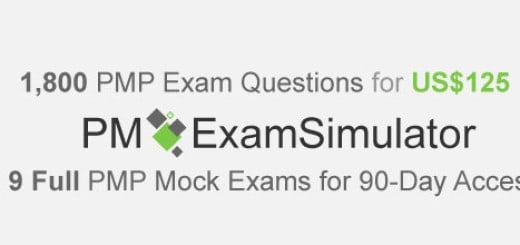

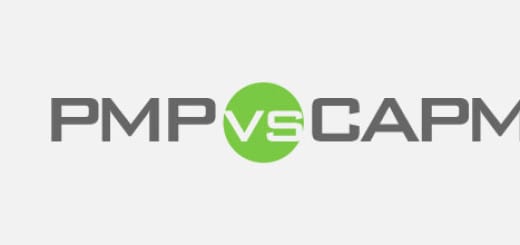
 Hi, my name is Edward Chung, PMP, PMI-ACP®, ITIL® Foundation. Like most of us, I am a working professional pursuing career advancements through Certifications. As I am having a full-time job and a family with 3 kids, I need to pursue professional certifications in the most effective way (i.e. with the least amount of time). I share my exam tips here in the hope of helping fellow Certification aspirants!
Hi, my name is Edward Chung, PMP, PMI-ACP®, ITIL® Foundation. Like most of us, I am a working professional pursuing career advancements through Certifications. As I am having a full-time job and a family with 3 kids, I need to pursue professional certifications in the most effective way (i.e. with the least amount of time). I share my exam tips here in the hope of helping fellow Certification aspirants!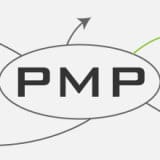
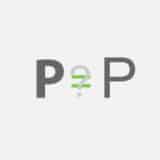
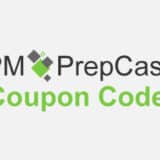
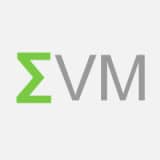


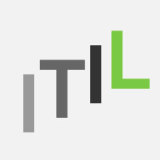
Hi Edward,
First of all a Big Thank You for creating these Pages for PMP aspirers like me. They are immensely helpful in our preparation.
I am currently in the Preparation stage for PMP exam. I have already gone through the PMBOK, and have started attempting the Mock Exams. I feel that I can answer the scenario based questions relatively well. I have trouble in the questions that are very specific to the Inputs\Outputs of the Various Processes. Example – “Project Team has developed the Network Schedule Diagram. The Project Manager should ensure that the team updates following Project Documents.” We are then given the options for the different Project Documents.
I am having issues in remembering all the Updates, and the Inputs\Outputs for each Process. To answer these questions, I try to relate the Requirements of the Processes with the given options. Can you suggest a way as to how these questions can be handled better, or do I have to remember each and every Input\Output for all the Processes (This includes Project Management Plan Updates, Project Document Updates, etc).
Looking forward to your answer.
Regards
PK
You are almost ready to go if you can handle the situational questions well. For the inputs/outputs, you may encounter just a few of these in your exam. I tried to memorize the more important ones by practising more questions on those ITTO’s. Wish you PMP success!